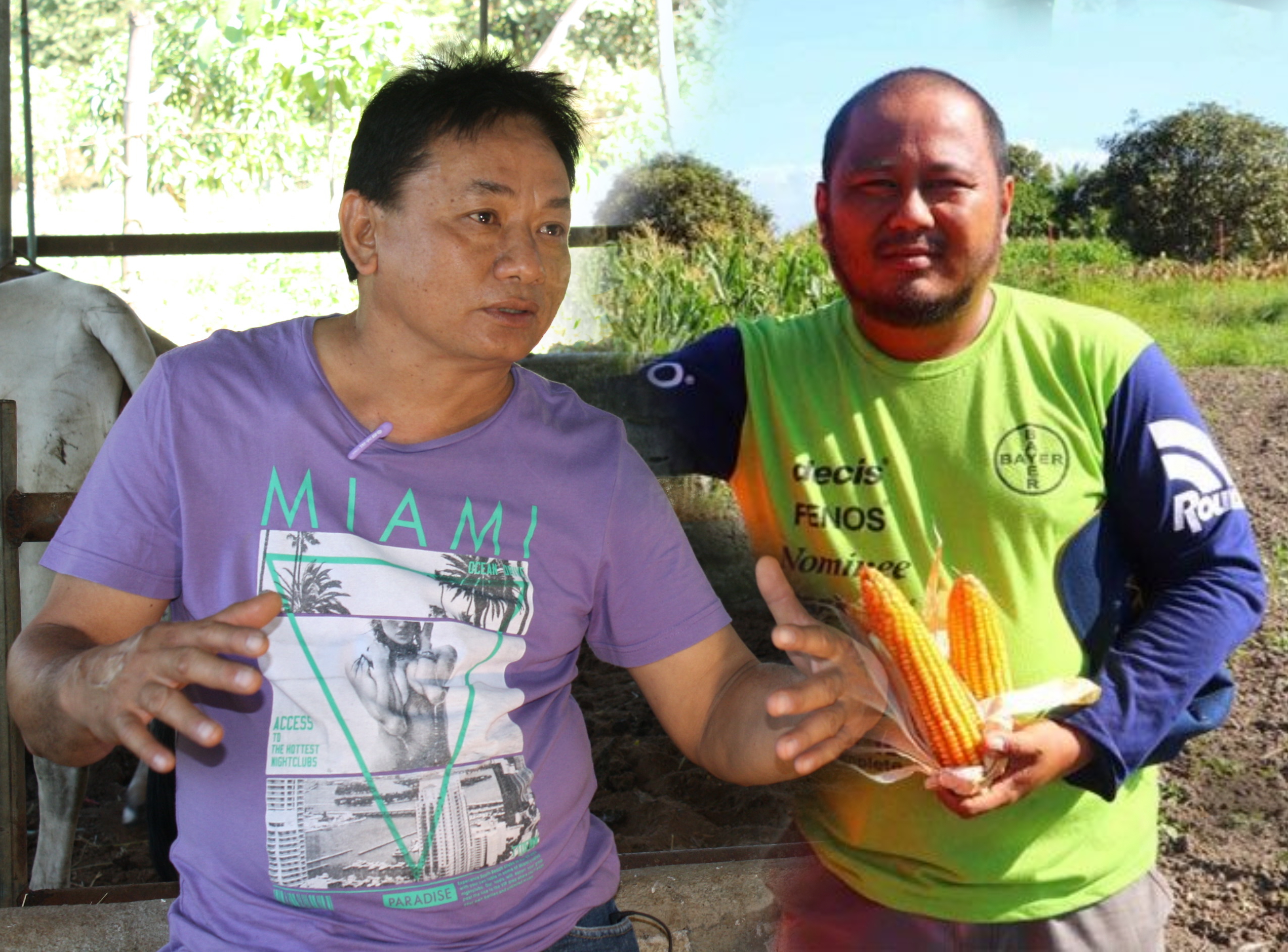
A former overseas Filipino worker (OFW), engineer Celestino Mananguit, of San Ildefonso, Bulacan, developed an integrated eight-hectare livestock farm, expanding it into a techno-demonstration and agri-tourism farm that provides food, livelihood, and employment in his community.
A retired seaman, Melbert Gabriel Fadrigo developed their family farm, in Hamtic, Antique, mechanizing his operations and now producing tons of rice and corn yearly, employing six regular farmhands, thus benefitting not only their families but also other farmers as he rents out his four-wheel tractor.
Armed with passion and hard work, and aided by technical and financial assistance from the Department of Agriculture (DA), Mananguit and Fadrigo are just some of the former OFWs that the Department of Agriculture (DA) is luring to engage in agri ventures, offering them zero-interest loans, free training, and technical and marketing assistance.
“We are opening our doors to OFWs like Managuit and Fadrigo to join the ranks of our new breed of agripreneurs, who will help us revive and reboot the countryside, and at the same time support the Balik Probinsya, Bagong Pag-asa (BP2) program,” said Agriculture Secretary William Dar.
“As we adopt the ‘whole-of-nation approach’ in creating more livelihood and employment opportunities in the countryside, we will also ensure that more small farmers and fishers, and BP2 program beneficiaries will benefit from agri ventures spawned by our returning OFWs,” said Secretary Dar.
He made the offer in attracting OFWs during a teleconference on May 15, with Gemma Sotto, chairperson of the United Filipino Global International, and dozens of government officials and leaders of OFW organizations in the Middle East, US and Australia, among other countries.
He said the DA through the Agricultural Credit Policy Council (ACPC) has loan programs that are accessible to OFWs, including free technical trainings from the Agricultural Training Institute (ATI).
The DA-ACPC loan programs — namely the Expanded SURE-Aid and Recovery Project or SURE Covid 19, Kapital Access for Young Agriprenuers (KAYA), and Agri-Negosyo (ANYO) — aim to help micro and small enterprises (MSEs), marginal small farmers and fishers, and young agripreneurs to venture into agrifishery enterprises.
“Now is the time to tap the OFW sector as they start to reintegrate themselves back to their respective homes, communities, and provinces,” Secretary Dar said.
Under the SURE Covid 19 program, MSEs may avail of up to P10 million as working capital at zero interest and payable in five years. They may be engaged in agri-fishery food production, delivery of produce or commodities, and other activities in the supply chain whose operations were affected by the expanded community quarantine (ECQ).
Individual farmers and fishers, affected by the ECQ, may borrow a non-collateralized loan of P25,000, zero interest, payable 10 years, to finance their emergency and production capital requirements.
To attract Filipino millennials — young entrepreneurs or agri-fishery graduates, aged 18-30 years old — the DA-ACPC offers the KAYA financial package, where they can borrow up to P500,000, zero interest, payable in five years. They may engage in start-up or existing agri-based projects.
The ANYO Program finances agri ventures, working capital or fixed asset acquisition by individuals, sole proprietors, partnerships, corporations, and cooperatives, whose members are marginal small farmers and fisherfolk. They can avail of P300,000 up to P15 million, zero interest, payable up to five years.
All of the DA-ACPC loans are channeled through government and non-government financial institutions.
In addition, the DA-ATI will provide OFWs capacity-building and skills trainings like on social preparation and values formation, production technologies, farm business school, and establishment of agri learning sites, among others.
The DA-ATI also promotes household food security and livelihood program through the distribution of planting materials and farm animals, and sharing of technologies to enable OFW agri ventures to be productive and sustainable.
Further, the DA through its Agribusiness and Marketing Assistance Service (AMAS) will provide market-consumer linkaging, via the Kadiwa ni Ani at Kita program, under the leadership of DA Assistant Secretary for agribusiness Kristine Evangelista.
Currently, Kadiwa has three modes — Kadiwa on Wheels, Kadiwa Retail, and Kadiwa Online or e-Kadiwa — providing consumers greater access to fresh agriculture and fishery produce.
President Rodrigo Roa Duterte on May 6 issued Executive Order No. 114, institutionalizing the BP2 Program as a pillar of balanced regional development, under which the DA is tasked to focus on attaining food security and increasing agricultural productivity.
Among those who joined Secretary Dar and Ms. Sotto at the OFW teleconference were:
- Director Ma. Florinda Princess E. Duque, PCOO;
- Phl Consul General (PCG) Arman R. Talbo, New York, USA;
- Ami Ofelia Mendez-Henriquez, Honorary Consul – Aruba PCG;
- Ambassador Jesus “Gary” S. Domingo, Phl Ambassador to New Zealand;
- Acting PCG Anthony Mandap, Melbourne, Australia;
- Office of Senator Christopher Lawrence ‘Bong’ Go and Senator Ronaldo ‘Bato’ Dela Rosa; and
- Director Ma. Florinda Princess E. Duque, PCOO. ### (Malyn Guinto, DA-ACPC and Adora Rodriguez, DA AFID)













